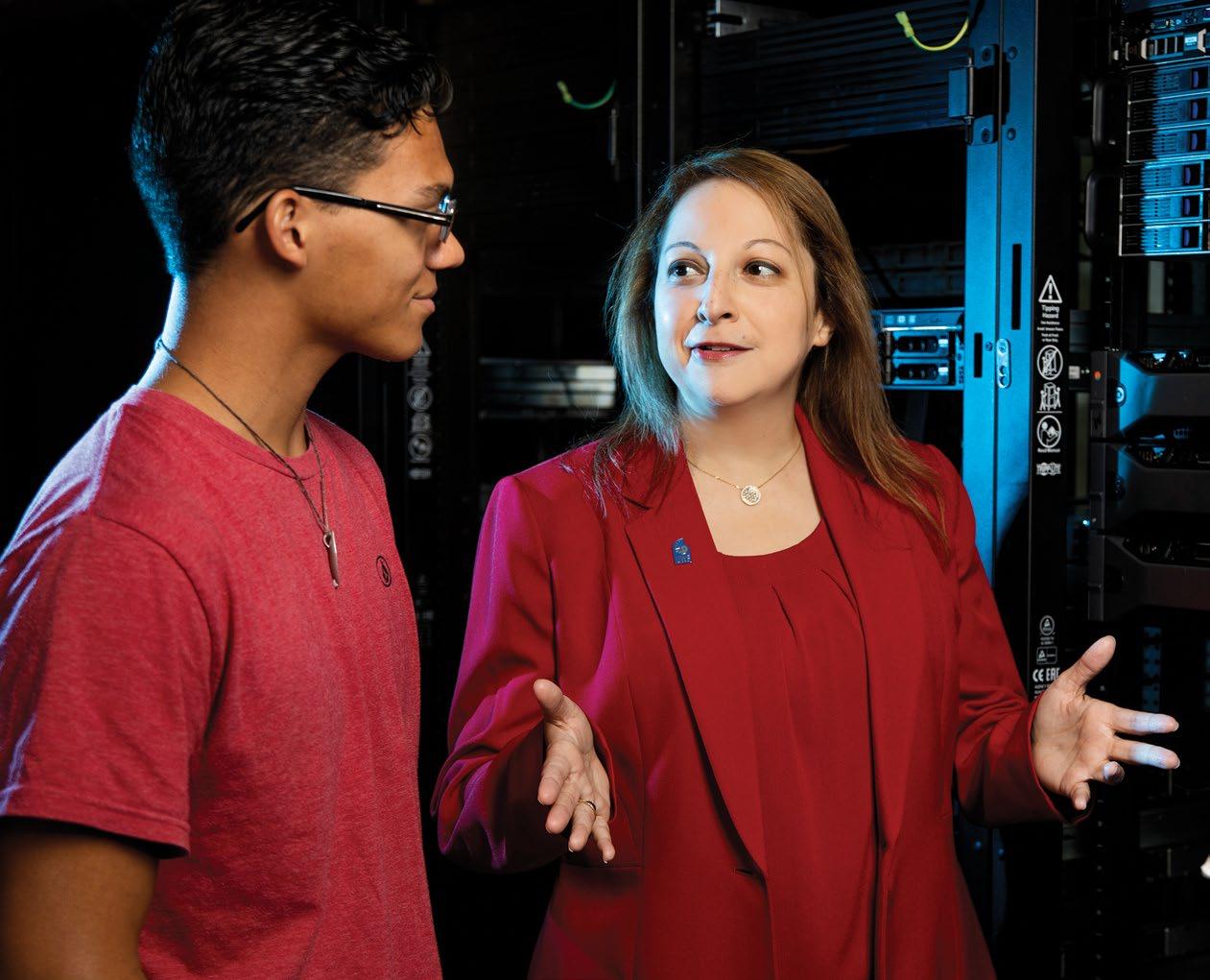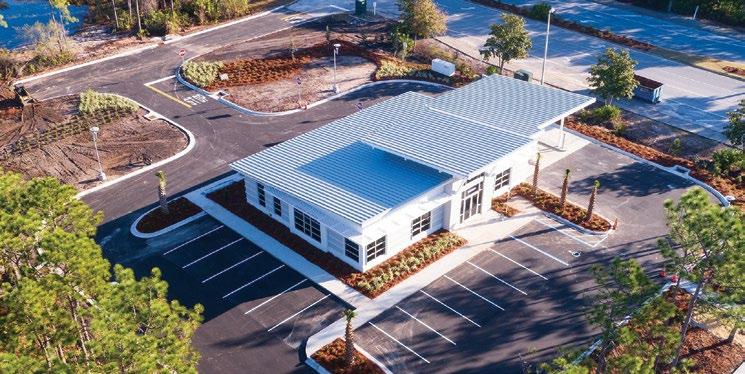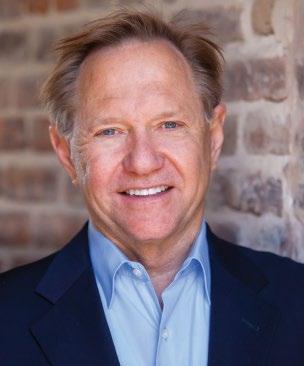
4 minute read
The National Security Agency, in October of last year
CYBER-HELP WANTED
UWF’s Dr. Eman El-Sheikh leads effort to fill critical jobs
BY STEVE BORNHOFT
The National Security Agency, in October of last year, awarded a $6 million cybersecurity workforce development grant to the University of West Florida, which has been selected to lead a coalition of ı0 colleges and universities in efforts to address a critical workforce shortage.
“In the United States, we have more than 500,000 unfilled cybersecurity jobs,” Dr. Eman El-Sheikh said in November, “and ı,500 of those openings are here in Northwest Florida. We can’t hope to fill those jobs by focusing solely on academic degree pathways.”
UWF’s Center for Cybersecurity, which UWF associate vice president El-Sheikh leads, began blazing other trails years ago when it established its Cybersecurity for All program, whose mission includes up-skilling and re-skilling individuals for cybersecurity jobs.
While other schools were more timid, UWF “took an innovative, bold approach to developing workforce programs, and the NSA
grant recognizes our leadership in that area,” El-Sheikh said. “The grant is a huge opportunity for Northwest Florida and a huge honor and responsibility for UWF.”
The development of a national cybersecurity workforce program will particularly involve recruiting military veterans — and military personnel and first responders in transition — and preparing them to take on cybersecurity roles.
“Many institutions would rather stay in the comfort zone of academic degree programs,” said El-Sheikh, who credits UWF president Martha Saunders with leading the school to do more.
“We were interested at UWF in having a bigger impact through strategic partnerships and innovation. We have been willing to do things that involved risk and were experimental, but somebody’s got to go there if we are to stay ahead of threats.”
UWF Center for Cybersecurity extracampus activities have included a partnership with the state Department of Management Services whereby it provided cyber-training across all state agencies. The center has worked with elections officials statewide and has conducted cybersecurity camps, funded by the NSA, for students and adults. Via its Cybersecurity Ambassadors Program, it sends top UWF students into the community to promote awareness of cybersecurity issues and the need for good cyber-hygiene.
“Threats to cybersecurity grow in numbers and complexity daily,” El-Sheikh said. “The pandemic has created new vulnerabilities because so many people have transitioned to working and learning remotely. Employees may access confidential data or networks without secure connections or may not have a secure network environment at their home.”
El-Sheikh said high-speed evolution in the way we communicate and interact with schools and workplaces will bring about permanent parts of a new normal. That, she said, makes creating more secure cyber-environments and communities imperative.
About that work there is relentless urgency.
“We don’t have time to reinvent the wheel, so we seek out and develop strategic partnerships that will spur innovation,” El-Sheikh said. “We are moving fast, but so are our adversaries. The new tools and technologies that we are employing, such as artificial intelligence and machine learning, they, too, are employing.”
A popular perception to the contrary, cybersecurity jobs are not limited to coding alone at a computer. Cybersecurity, El-Sheikh said, is a team sport that relies on skills such as communication, problemsolving and critical thinking that are important to many fields of endeavor.
Many of the ı,500 Northwest Florida job openings are tied to the region’s military installations, but important cybersecurity work is also taking place in the private sector. El-Sheikh cited as an example work ongoing at the Navy Federal Credit Union in Pensacola.
There are openings for programmers, vulnerability and intelligence analysts, and security managers and administrators.
Among cybersecurity students at UWF, many take advantage of the Cybercorps Scholarship for Service program that awards scholarships plus stipends to students in exchange for commitments to work post-graduation for a federal government agency.
Born in Egypt to educator parents, El-Sheikh grew up substantially in Michigan. She earned a master’s degree and a doctorate in computer science at Michigan State University. She is passionate about leading other women to consider careers in cybersecurity, and the center has established a Women in Cybersecurity Florida affiliate and a Women in Cybersecurity student chapter. At present, women hold only about ıı percent of cybersecurity jobs in the U.S.
The nature of the Emerald Coast is a key to attracting top cyber talent to the region, El-Sheikh said.
“A lot of cyber and defense work takes place in the Washington, D.C., area, but once those individuals realize that they could operate out of here, they’re not going to go back,” she said. “I was a perfect example of that. I somehow gave up Michigan winters for Pensacola Beach.”
El-Sheikh has been at UWF for nearly 20 years and began there as an assistant professor of computer science. She was attracted in 20ı4 to the opportunity to head up the newly established Center for Cybersecurity because she had a keen interest in helping to address challenges with implications for regional economic development and national prosperity and security.
“Many are aware that Pensacola is the cradle of Naval aviation, but they may not know that Pensacola is also the birthplace of cryptography, which is fundamental to cybersecurity,” El-Sheikh said. “The region has a long history of work in cybersecurity, and we are building on that.”
Associate vice president Dr. Eman El-Sheikh, the director of the UWF Center for Cybersecurity and a professor in the Department of Computer Science, is playing a role in providing the Emerald Coast with a second identity: Cyber Coast. She is pictured here with students Justin Fruitticher and Caroline Krause.










